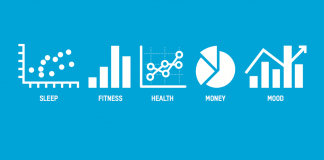The Effects Of Stress On Skin Aging
There are two questions you have probably heard quite often: How much does stress affect natural skin aging? And is there biological evidence to connect the two?
Studies over the years are drawing a clear connection between the two. Unfortunately, this points to somewhat of a vicious cycle. If you’re stressed, your skin may suffer, in turn only stressing you out more. Adding aging to the mix can add to the effects on the skin as wrinkles, sagging skin and dark spots and circles start to occur on their own.
While this may sound like a slippery slope, the positive flip side suggests that identifying the signs of stress and addressing them can in turn improve the look of your skin.
Genetic studies have linked stress to cellular damage through oxidative stress and shortened telomeres.
- Telomere length: The telomere is the cap at the end of a chromosome, and its length indicates cellular aging. The more the cells have aged, the shorter it is. A PNAS study links heightened psychological stress to shorter telomere length. The study makes a clear connection: psychological stress shortens our telomere lengths and, as a result, ages our skin.
- Oxidative stress: Oxidation occurs when your body processes the oxygen you breathe. This process produces free radicals. Although free radicals stimulate the repair of cells, they also damage the molecules of the surrounding cells. When the damage overwhelms the repair process, we go through what is called “oxidative stress.” Oxidative stress is often induced by stress and, according to a 2015 study, causes premature aging.

Skin Aging: Common Signs Of Stressed Out Skin
In addition to aging skin, stress directly affects certain characteristics. Here are the most common signs of stressed out skin.
- Dark circles under your eyes: When your body is under stress, the capillaries under your eyes can break, leaving you with dark circles. Once the stress dissipates, your body can heal. But long-term stress can cause permanent dark circles.
- Bags under your eyes: One of the worst side effects of stress is not being able to sleep. When you lose sleep, fluid builds under your eyes, giving your eyes a puffy, tired look. When you do get your sleep, this can be corrected. However, continuous stress makes this unsightly feature permanent.
- Wrinkles: When worry and stress have you fixated on certain problems, your brow is constantly furrowed or your mouth remains tight and pursed. If you’re constantly frowning or your mouth is often tight, these stress lines can become permanent.
- Acne: Stress doesn’t cause acne but it can aggravate your already sensitive skin. In a Stanford study, students had more acne flare-ups during testing compared to the period before testing. How does this happen? It seems that stress causes the skin to produce more oils through stress hormones, and these oils are responsible for clogging the hair follicles, thus leading to pimples.
Skin Aging: The Warning Signs of Stress
There are many warning signs of stress that are often ignored because we are too caught up in our busy schedules. If you find that your skin is duller than usual and you are suffering from the symptoms below it may be time to take a step back and reassess your routine, schedule and overall health.
- Poor sleep: If you’re up most of the night worrying, then you’ll probably feel the effects of it the next day. Constant fatigue from nights of poor sleep is a clear warning signal that your mind is unable to rest due to stress factors.
- Gray hairs: Gray hairs can be a sign of natural aging, but it can also be a sign of increased stress. If you’ve never had gray hairs appear and are below the age of 30, it may be a sign worth considering.
- Skin rashes: Skin rashes like eczema and hives are pretty strong indicators that your immune system is weakening due to stress or anxiety. If you are not prone to skin rashes, the appearance of one is likely an indicator of stress and skin irritation. There are over-the-counter topical creams and medications that can relieve the itchiness. However, in order to prevent a recurrence it’s important to assess your stress levels.
- Body aches: Common warning signs of stress are various body aches. If you feel like you’ve run a marathon or have spent hours in the gym but in reality are just trying to get out of bed in the morning, it’s likely due to stress. Neck and back aches as well as headaches and tense muscles are all reactions to an overworked and tense state of mind.
- Rapid heartbeat or chest pains: One of the scariest warning signs of stress are chest pains or a rapid heartbeat as they could both indicate a heart attack. If you experience these pains, it’s important to consult a medical professional. While you may not be having a heart attack, you most certainly are overstressed.
Moments of stress and anxiety are normal in life however, prolonged stress can lead to significant damage to the body, mind and skin. Finding a way to manage it through meditation, exercise and a healthy diet will go a long way in slowing down the aging process and restoring a healthy quality of life.
Zoe Dobson

Author
Auteur
Zoe Dobson is a staff writer for Zwivel, dedicated to writing fun and informative health and wellness articles.
More about the Long Long Life team
Zoe Dobson est rédactrice pour Zwivel, elle se consacre à la rédaction d’articles amusants et informatifs sur la santé et le bien-être.
En savoir plus sur l’équipe de Long Long Life









